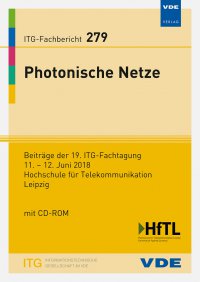Verification of Channel Reciprocity in Long-Range Turbulent FSO Links
Konferenz: Photonische Netze - 19. ITG-Fachtagung
11.06.2018 - 12.06.2018 in Leipzig, Deutschland
Tagungsband: Photonische Netze
Seiten: 6Sprache: EnglischTyp: PDF
Persönliche VDE-Mitglieder erhalten auf diesen Artikel 10% Rabatt
Autoren:
Parthasarathy, Swaminathan; Giggenbach, Dirk; Fuchs, Christian; Mata-Calvo, Ramon; Barrios, Ricardo (Institute of Communications and Navigation, German Aerospace Centre (DLR), 82234 Wessling, Germany)
Kirstaedter, Andreas (Institute of Communication Networks and Computer Engineering, University of Stuttgart, 70569 Stuttgart, Germany)
Inhalt:
High-Altitude Platforms / High-Altitude Pseudo Satellites (HAPs) will extend Internet access to currently uncovered regions. Free-Space Optical (FSO) links will interconnect HAPs over long distances through the stratosphere. Their Forward Error Correction has to be carefully adapted to the atmospheric scintillation channel. Long delay impairs the exploitation of receiver-based channel state information (CSI). Only inherent CSI provided by channel reciprocity allows in time control. Investigation results of this fading-signal correlation phenomenon over long distances however have not yet been reported. Therefore, we experimentally study this effect in a long-range (63 km) monostatic bidirectional atmospheric FSO link for a wide range of parameters. Numerical phase-screen simulations of the transmission scenario confirm the results.


